Deana Uppal graduated from the LFA Documentary Filmmaking Certificate in 2018, and is one of our treasured, female alumni. Since leaving us, she’s gone on to write, direct, produce, and narrate her first feature-length documentary, ‘India’s Forgotten People’; a moving and sensitive investigation of the Gadia Lohars community in India, which will be available to stream on Netflix from April 2022.

Deana has had a unique and varied career to date. As well as featuring as an actress in a number of films, she also starred in the 13th series of UK Big Brother, and was the winner of Miss India UK in 2012, before turning her attention to filmmaking.
She is a passionate entrepreneur and philanthropist, having founded the Kindness Diaries Charitable Trust. Deana also founded DKU Productions, the company through which she produced ‘India’s Forgotten People’. She was featured on the cover of Grazia Pakistan in 2022.
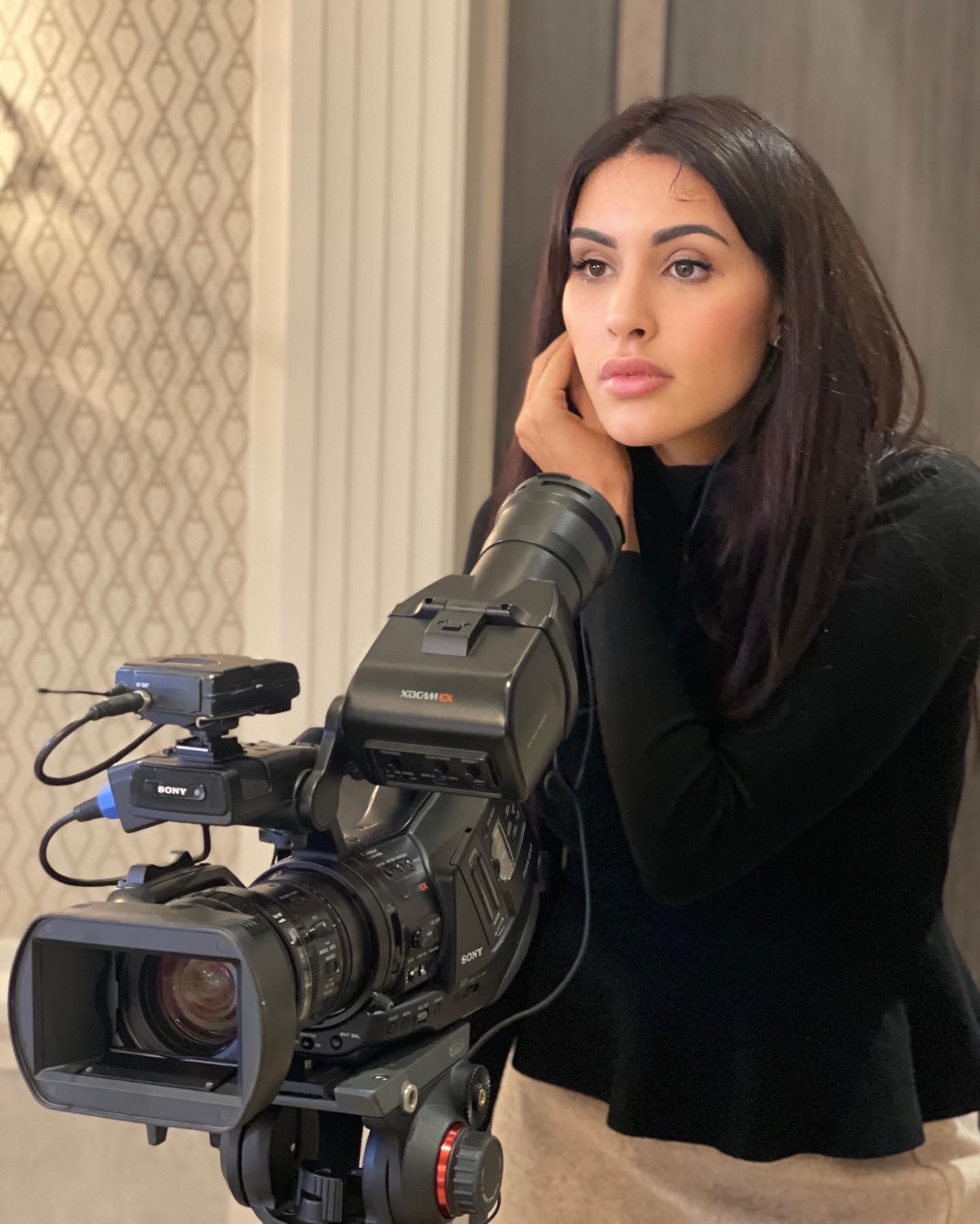
We were lucky enough to chat to Deana about her memories of the LFA Documentary Certificate, her first documentary project, ‘India’s Forgotten People’, and the other work she’s done since then. Take a look at Deana’s comments below!
You were a student on the LFA Documentary Filmmaking Certificate in 2018; what was your experience like on the course?
I still remember that after the first class had finished, I had a feeling of satisfaction that many questions I had about documentary filmmaking were answered clearly. The course continued with each class being packed with extremely useful teachings, in different aspects of filmmaking, from film production to film distribution. The tutors were all experts in their fields, each one specialising in a different aspect of filmmaking. The course gave me the confidence to go and make my own documentary. I still use the notes I took in class when reminding myself of how to research, shoot and sell a film.
Deana Uppal

How do you feel the course has helped you prepare for your current career?
I feel the course gave me the confidence to take the big leap and start my first documentary. Before the course, I had a general idea of how I would make the film, however there were still aspects I was unsure about. During the course I made sure to get all my doubts cleared and get my answers from the courses tutors.
Deana Uppal
Why are documentaries an important form of filmmaking to you?
Documentaries expose people to new information, unique subjects around the world and different aspects of life that otherwise would be unknown to many. Documentaries can expand our knowledge, and educate us in an interesting and entertaining way.
Deana Uppal
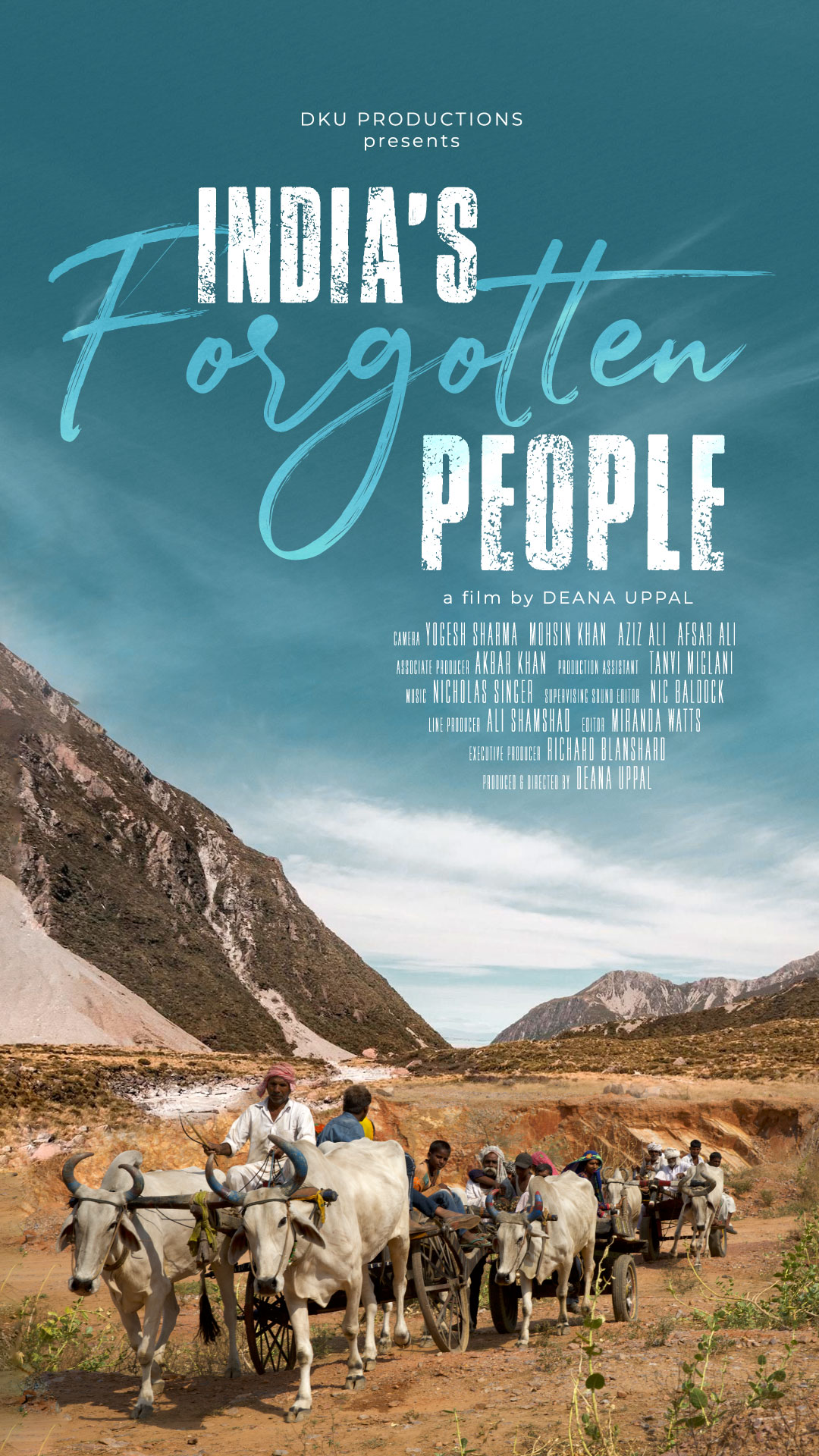
‘India’s Forgotten People’ is about the Gadia Lohars community, and the class and wealth divides that exist in India; what inspired you to tell this story, and why was it important to you that this documentary was made?
When I was living in India, often I would travel to Rajasthan. Sometimes I would notice the Gadia Lohars travelling on carts. Whenever I asked locals about them, I was either told they were travelling criminals, or people simply did not know what community they were from. As I researched more, I learnt that the Gadia Lohars have a deep-rooted history and that they have been excluded from India’s progressing society. I knew that this subject was the one for me to concentrate on, as it is exposing an interesting community that many are unaware of, and also shining a light on the poverty and unfairness they are suffering.
Deana Uppal
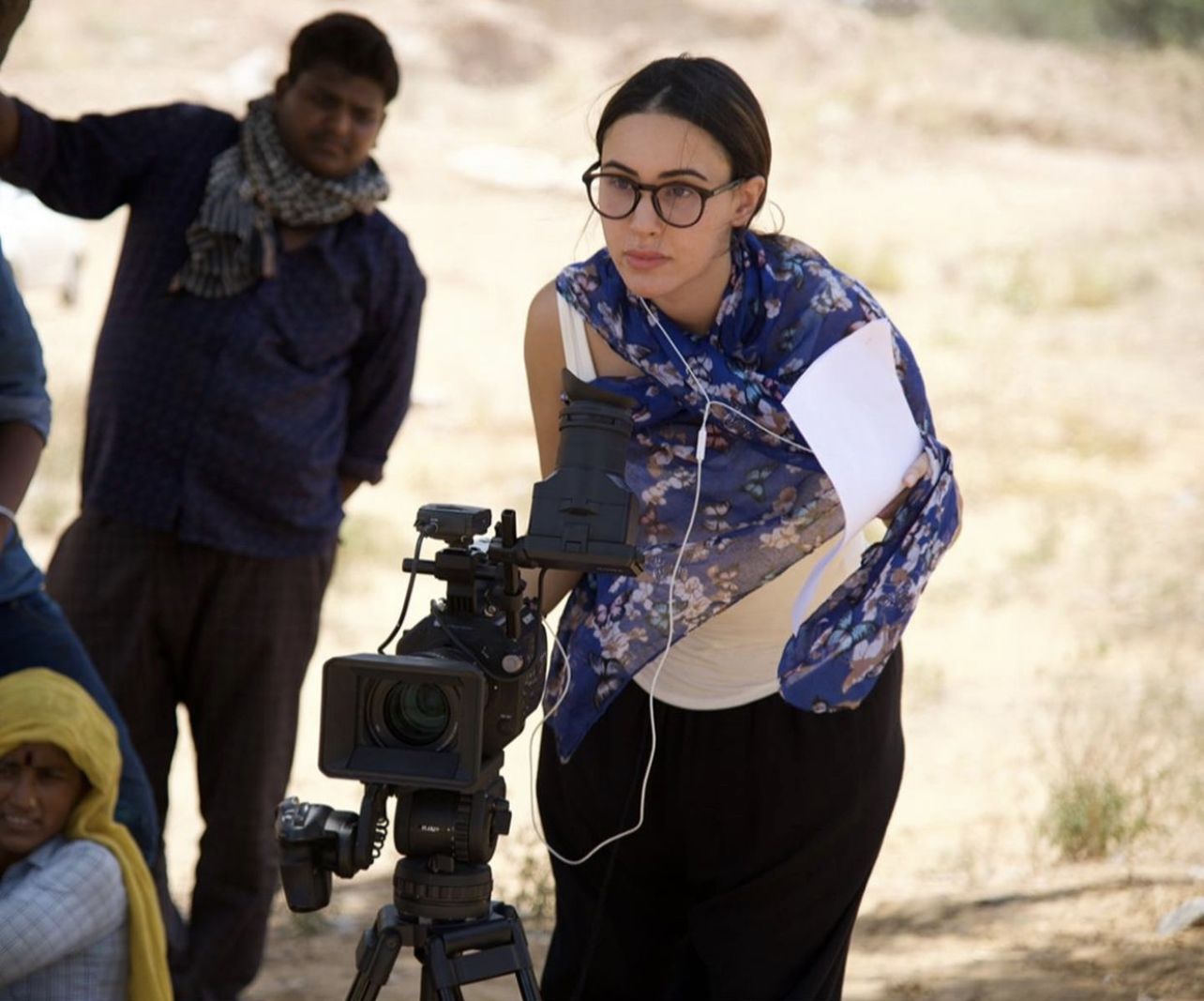
You directed and produced the documentary yourself; can you tell us about some of the challenges you faced in the production process, and how you overcame them?
There were many challenges and I can say this was the most difficult project I have ever worked on. The first challenge that comes to mind was the communication barrier between myself and the Gaddia Lohars, as many speak their own regional dialect. I wanted to go more in depth with my questions, but it was proving difficult as relying on a translator was slowing down the feel and flow of conversation. Another struggle was the shooting locations; the Gaddia Lohars camp in unhygienic and unclean locations, so I was getting a lot of severe allergies, I really just had to grit through. Emotionally the shoot was very draining, as connecting with families that were suffering from extreme poverty was heart breaking. Editing the footage took much longer than it should have, as dealing with and cutting down all the different dialogues, and finding people to translate correctly, was difficult.
Deana Uppal
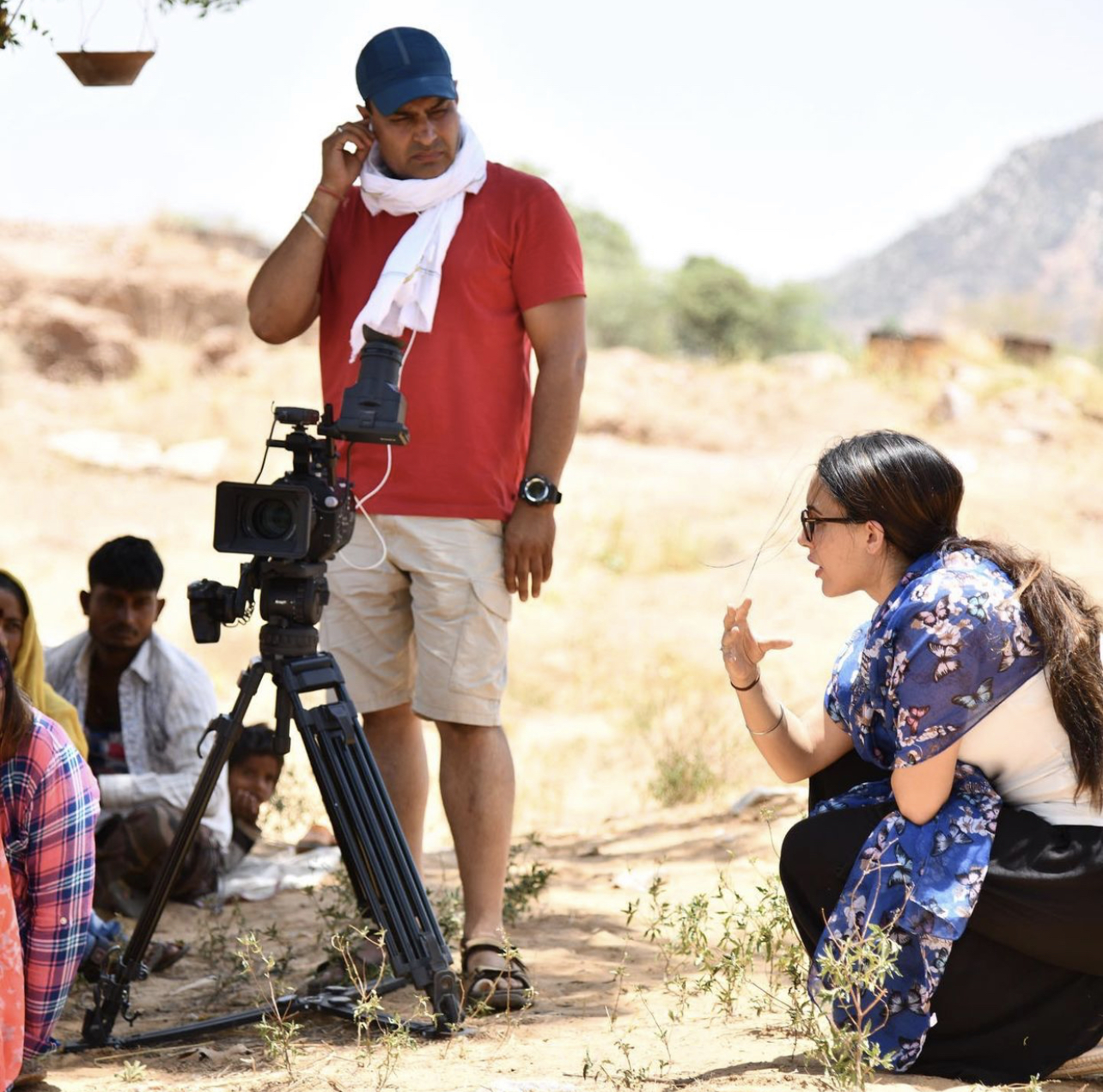
You also host and narrate the documentary; what was your experience like of meeting the people in the film and telling their story on camera?
Before filming I was worried about how the community would react to me, I had heard that they can be extremely violent and dangerous. However, once I had started spending time with the community, my worries disappeared. I learnt that the Gaddia Lohars are actually extremely welcoming. The children where always so excited to meet me which was heartwarming.
Deana Uppal
How did you secure distribution for the documentary? What advice do you have for young filmmakers trying to secure their own distribution?
I spoke with a few distribution companies and decided to go with the company I felt truly believed in the film, and had a track record of successfully realising documentaries in a similar category as mine. My advice to new filmmakers would be not to get disheartened if a few distributors reject your film, as it could just be that your film does not suit their catalogue. Research who has distributed films similar to yours, and approach them. If this does not work, then look at other options such as self-distribution online.
Deana Uppal

What has the response been like from people who have watched the documentary?
The response has been amazing. I have been receiving messages from people all around the world, mostly expressing that they are happy to have learnt about a community they had no idea about. The film has also prompted many to find out how they can help the Gaddia Lohars.
Deana Uppal
Where can people watch and enjoy your documentary online?
So far ‘India’s Forgotten People’ has been shown on various channels such as Discovery Channel, and Detushe Welle. It can currently be seen in the UK on an Oculus virtual reality headset, and it is due for release on Netflix this April.
Deana Uppal
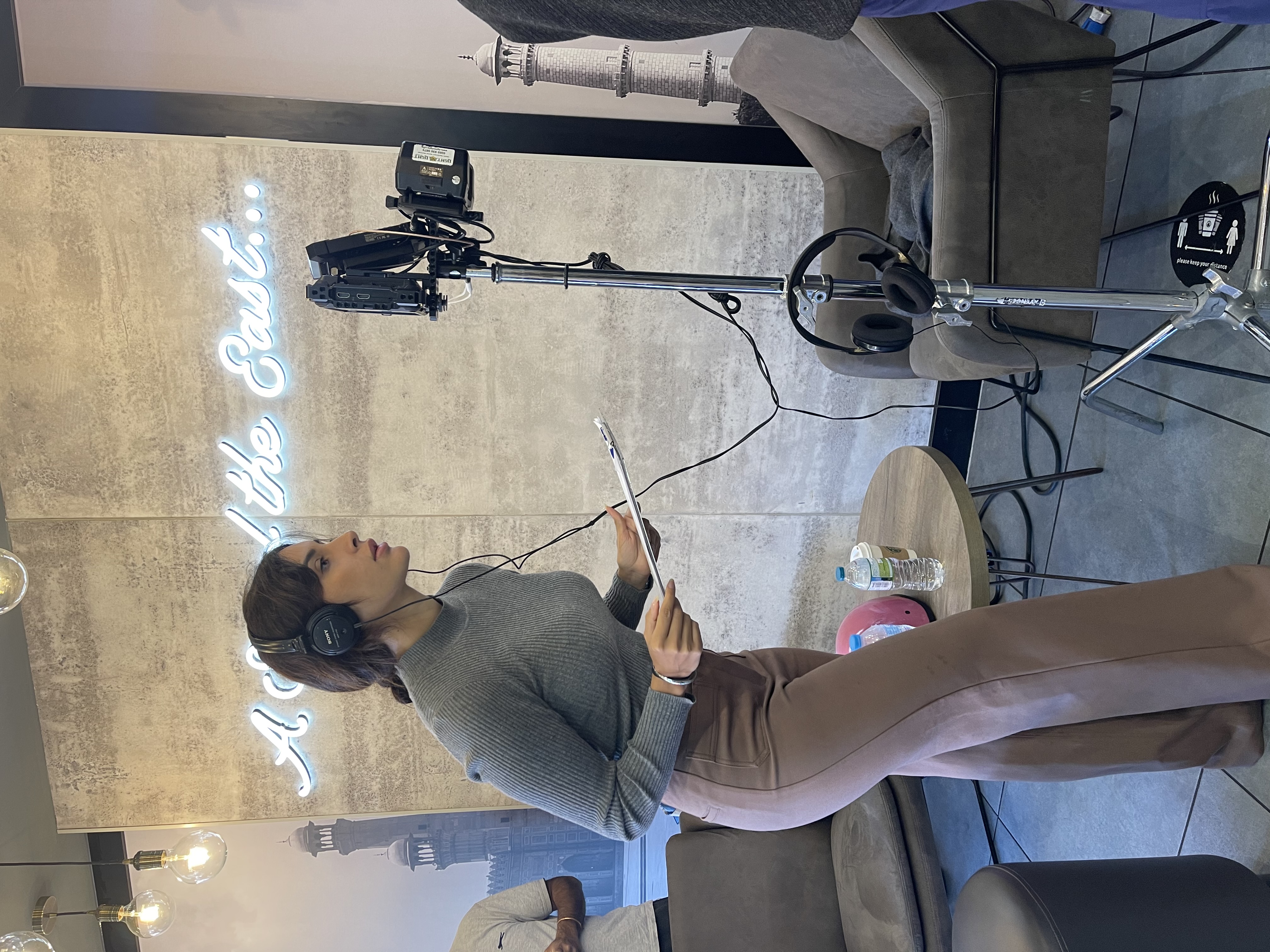
We’ve heard that you’re currently the executive producer on a new film. Can you tell us a little bit more about the film and how you got involved with the project?
I had a meeting with a production house that was planning to shoot an Indian film in the UK. They asked me for my advice regarding UK shooting, and as the work progressed, they offered me the role of Executive Producer. We shot 90% of the film in the UK and the other 10 percent In India. It was a great experience to be on set with movie stars. The film is called ‘Jind Mahi’ and will be released worldwide this summer.
Deana Uppal
Can you speak about your experience as a female filmmaker, and what you think about the opportunities available to women, particularly in documentary filmmaking, at the moment?
I feel more women are now entering the film industry. However I’ve found it can be difficult as still, today, many men do not like to take instructions from a woman. I’ve found especially when directing music videos, I felt a power struggle as many of the singers only wanted a male director. Opportunities are there for women, but it takes a strong and independent women to survive in the industry.
Deana Uppal
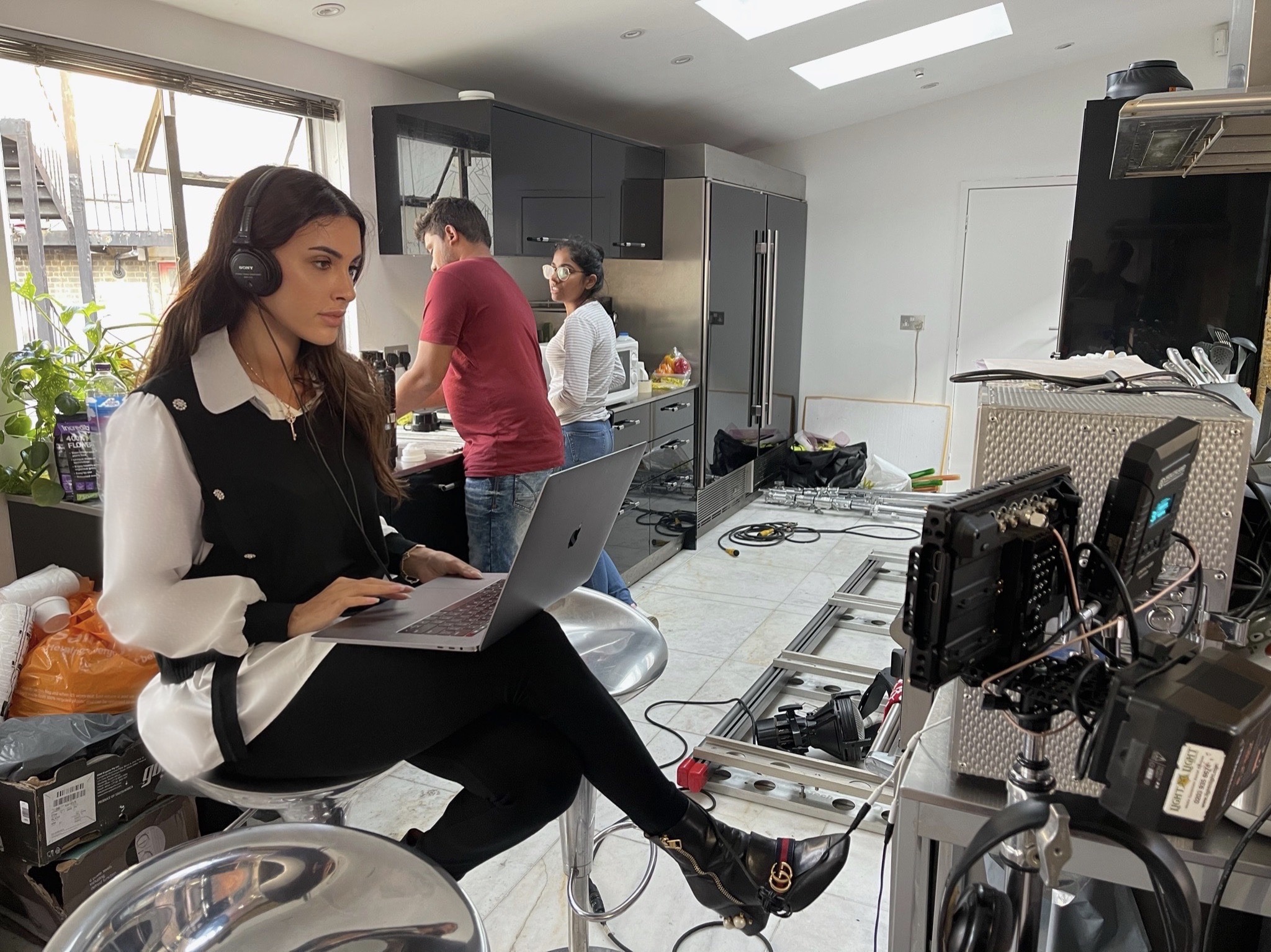
We can’t wait to see what you do next! What are your ambitions for your future career in filmmaking?
I am currently in the research stage of a documentary I plan to start shooting in March. In lockdown, I wrote my first feature film script. I plan to get this produced into episodes for an online platform.
Deana Uppal
Find out more about our 6-week Documentary Filmmaking Certificate.
Follow Deana on social media.
Pictures published with the permission of Deana Uppal.









